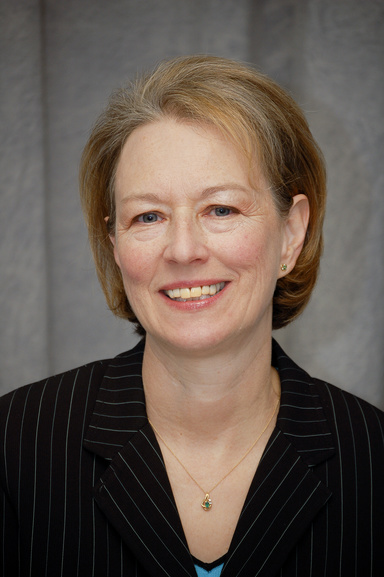For the fifth consecutive year, George Washington High School in Cedar Rapids is the top Advanced Placement school in Iowa, according to the Iowa AP Index.
The index, developed nine years ago by the University of Iowa College of Education's Connie Belin & Jacqueline N. Blank International Center for Gifted Education and Talent Development, assesses Advanced Placement (AP) participation among accredited public and nonpublic schools in Iowa. The index is part of the Belin-Blank Center’s efforts to recognize Iowa schools that provide challenging academic opportunities for high school students.
"Advanced Placement opportunities make a big difference in the lives of the students and their teachers...Schools that make these opportunities available to the students are clearly committed to the success of the entire student body."
—Susan Assouline, Belin-Blank Center director
The College Board’s Advanced Placement Program allows students to pursue college-level studies and take college-level exams while in high school. In May 2012, more than 2 million students took 3.7 million AP Exams in 34 subjects.
Rounding out the top five schools in the 2013 Iowa AP Index behind first-place George Washington High School (index of 3.21) are the following:
- John F. Kennedy High School, second, Cedar Rapids (index of 2.58);
- Regina High School, third, Iowa City (index of 2.38);
- Ames High School, fourth, Ames (index of 2.16).
- West High School in Iowa City, fifth, with an index of 1.97.
The top 25 schools will be honored during the annual Belin-Blank Recognition Ceremony on Oct. 13, at the UI.

“Advanced Placement opportunities make a big difference in the lives of the students and their teachers. The rating reflects participation in the AP program at a school, not the overall quality of the school," says Susan Assouline, director of the Belin-Blank Center. "However, one indication of a high school’s commitment to preparing high-ability students for college is access to advanced courses. Schools that make these opportunities available to the students are clearly committed to the success of the entire student body.”
The number of schools in Iowa offering AP opportunities and the number of AP exams taken has increased substantially since 2001, with 211 high schools having at least one student take an AP Exam and 16,413 AP Exams taken in 2012.
Sometimes, when greater numbers of students participate, there is a decline in performance, Assouline says. However, that is not the case with Iowa’s students. In 2012, the percentage of Iowa exams with a score of 3 or higher was 64.1 percent, which compares favorably to the 2012 national average of 59.3 percent.
The Iowa AP Index is designed to give a fair comparison of AP opportunity across Iowa schools. An index score is calculated for each participating school based on the ratio of AP exams taken by all its students divided by the number of its graduating seniors.
Through the Iowa Online AP Academy (IOAPA), funded by the State of Iowa, all accredited schools have access to free tuition for online AP courses and online AP Exam Review. During 2012-13, Iowa’s sixth graders had access to above-level testing, which indicates readiness for pre-AP advanced coursework.
The Belin-Blank Center provides outreach and professional development for teachers through the College Board-accredited Advanced Placement Teacher Training Institute.
To view the top 50 AP schools in Iowa, visit www.iowaapindex.org.